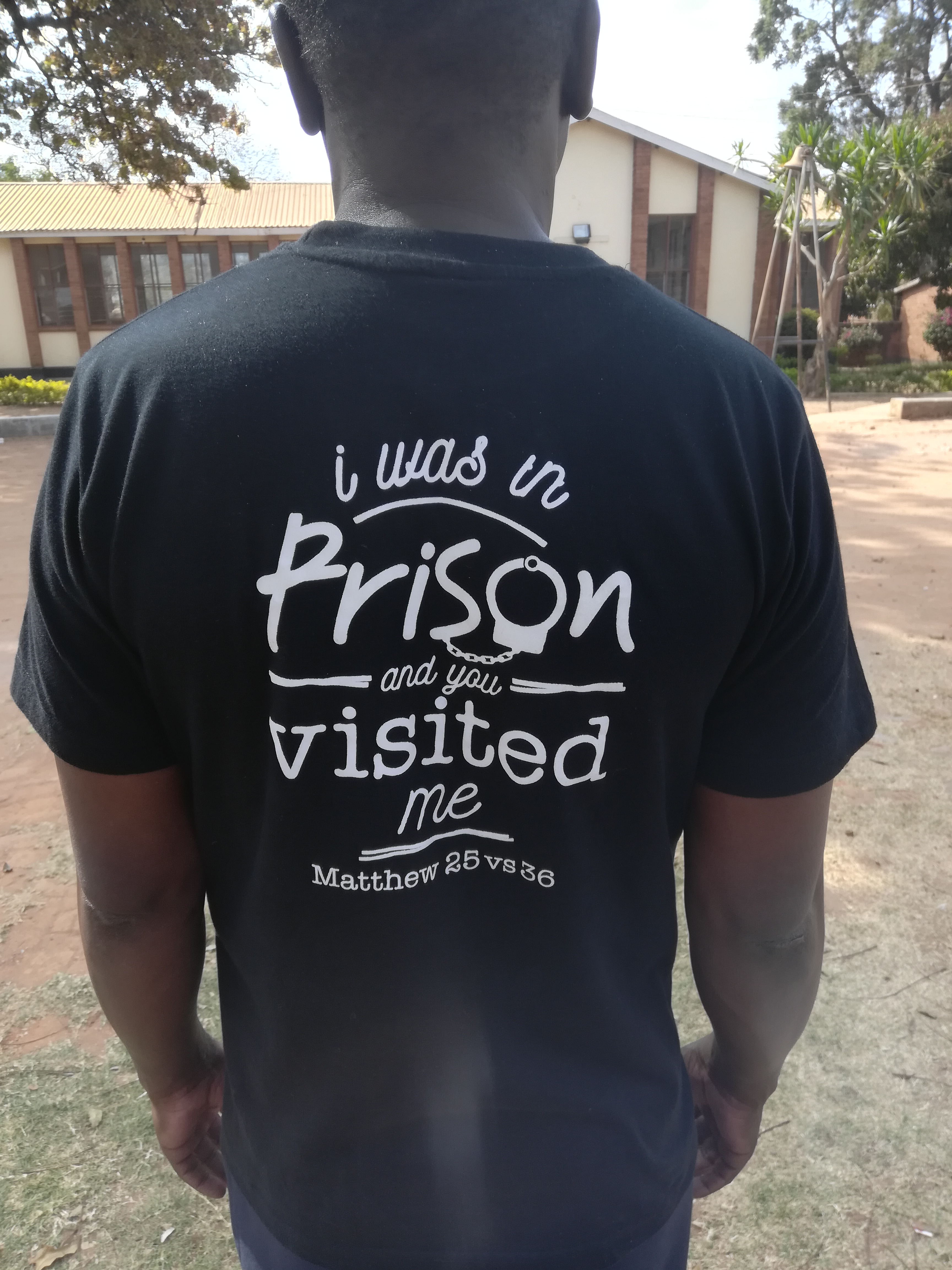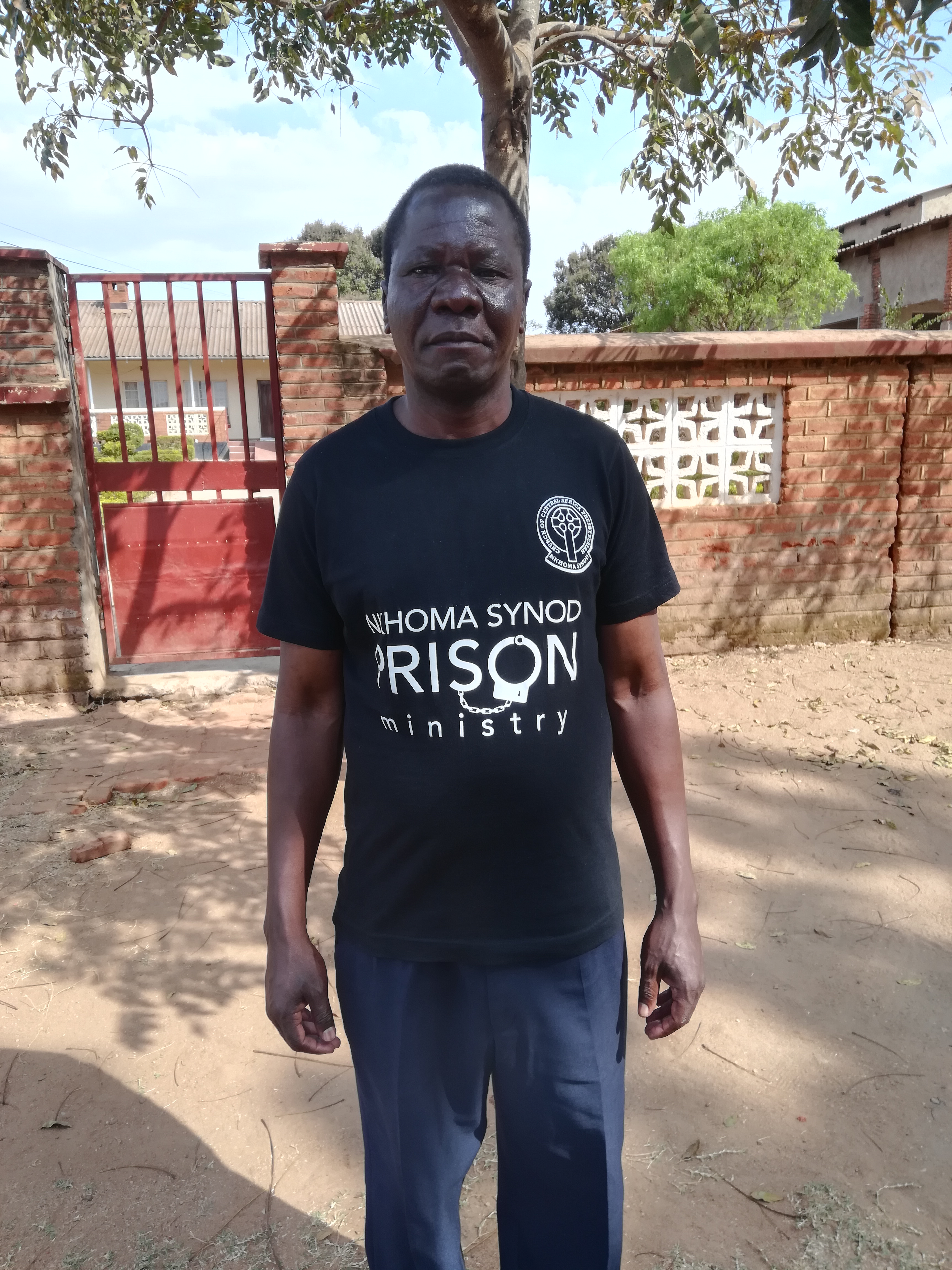A Letter from Jeremy and Luta Garbat-Welch, serving in Malawi
December 2019
Write: Jeremy Garbat-Welch
Write: Luta Garbat-Welch
Individuals: Give online to E200515 for Jeremy and Luta Garbat-Welch’s sending and support
Congregations: Give to D507577 for Jeremy and Luta Garbat-Welch’s sending and support
Churches are asked to send donations through your congregation’s normal receiving site (this is usually your presbytery)
If you were to visit Maula Prison in Lilongwe, you might notice that it feels very outdoorsy and open. There are multiple layers of fences, but in between them is a lot of open, undeveloped space. The lack of shrubs and low trees allows clear sight for a long distance, especially because it is built on a hill. It has a feeling of openness. Then you might notice that during visiting hours, there are large numbers of people lining the inside fences. After visitors have navigated the front gate and walked the hundred yards or so to the fence surrounding the main yard and cell blocks, they spread along the fence in order to talk to whichever inmate they are visiting. The fence is a double layer fence, with a few feet in between serving as a pathway. On the other side of the fence opposite the pathway, the inmates spread out, talking to their visitors. Or rather, shouting to be heard over the wind, traffic, and other people. That is the closest they seem to get to a private visit during incarceration: a shouted conversation through two fences and across an open pathway, with other visitors and inmates standing nearby.
In April, I (Jeremy) was able to attend a training to become a facilitator for Trauma Healing Groups. The training was a week long, and attracted people from various denominations across the city and surrounding area. Rev. Wickliff Zulu, the CCAP Nkhoma Synod Prison Chaplain, was also able to attend. He used his own money to do so, which indicates how important he viewed the training and knowledge to be for his ministry.
Trauma Healing International has a clear pathway for people to become facilitators (leaders) of a Trauma Healing Group. First, they must attend a facilitator training session. This is what we attended in April. Then they get Apprentice Facilitator status, which is good for two years. In order to become a full Facilitator, they must attend an advanced training, which we just did at the beginning of November. In order to qualify for that, we had to lead at least two healing groups between the two trainings. Rev. Zulu and I worked hard to facilitate two groups together. What should have been “plenty of time” turned into “just enough time,” thanks to the prisons changing schedules on us without notice, political demonstrations making getting around town difficult, last-minute mandatory meetings, and the other many life interruptions that make keeping to schedules complicated.
Because his ministry is with the prisons in the Central Region, Rev. Zulu wanted to do groups in the prisons. This posed some challenges, largely because consistent attendance is a key part of attending a healing group, and inmates are not in control of their schedule. Rev. Zulu is familiar with the leadership of the two prisons in Lilongwe, and so he met with the leadership to tell them about trauma healing and to get permission to do it with the inmates. It took some convincing! When they thought of it as counseling, they questioned whether group counseling worked, because in the past inmates wouldn’t open up in a group. When they thought it was a Bible Study, they wondered why we couldn’t just do it on Sunday when the church groups normally came, and why it had to be so long and with a specific group of people.The trauma healing program progresses through an understanding of God, suffering, and evil, to teaching about grief and grieving well so we can heal, and then ends with forgiveness and bringing our pain to the cross for Christ’s healing. At Kachere Youth Prison, we allowed the administrative staff to tell us which inmates to meet with and met with nine young men. At Maula Prison, Rev. Zulu met with the CCAP church that gathers inside the prison and asked them, who believes they shouldn’t be here, or doesn’t understand why they are here? And from that question, about 30 men came to the group. Both groups at the end said the biggest impact for them was the concept of forgiveness. One youth said, “If I had known how to forgive, I wouldn’t have done the things that got me here.” Many of the men at Maula said, “because I’m here, I am very bitter, and now I know I need to forgive in order to let that go.” In many different ways everyone found the need to forgive and to be forgiven to be the most important and most healing aspect of the group. Whatever the circumstances that resulted in the men being in prison, a wrong had occurred. Whether it was a wrong done by them to someone else, or a wrong committed against them in the form of unjust incarceration, they were all very aware of the need for forgiveness.
On one of our visits to the Kachere Youth Prison in Lilongwe, Rev. Zulu was coming from a meeting of the CCAP Nkhoma prison committees. He was wearing the prison committee t-shirt, which quotes Mathew 25: “I was in prison and you visited me.” As a chaplain I’ve been asked in various settings and in various ways what verse I use to motivate my ministry. And it has always felt like cheating to choose Mathew 25. After all, it seems like a command to me: Go and visit people in Hospitals and Prisons! Somehow it seems that having gone through all the theological and counseling training I’ve been through, I should have a more nuanced motivational verse. One that would make people say “hmm” as they ponder the verse in a new light. Choosing a verse that basically says, “Go and be a chaplain” just doesn’t seem very fancy. But when I saw the verse on Rev. Zulu’s t-shirt, I thought, really, what better verse is there? People aren’t “the least of these” because they are somehow less worthy of love or value. Rather they are the “least” because they are forgotten, overlooked, ignored by society. They are the people who don’t fit into our daily routine, or make our lives messy, or remind us of the pain and suffering and complications that we can find everywhere in the world. Those things are unpleasant, and most of us do what we can to avoid spending much time thinking about them. And Jesus speaks right to that, saying, whenever you encounter someone who is forgotten, or reminds you of pain and suffering, or makes your life complicated, that’s where you will find me! So go, visit, serve, love them, and remind them they aren’t alone, that they aren’t forgotten! And who knows, you might just find that Jesus has been there all along, right wherever you’ve forgotten to look.
In Christ’s Service,
Jeremy (for the Garbat-Welch’s)
Please read this important message from Sara Lisherness, interim director of Presbyterian World Mission
Dear friend of Presbyterian Mission,
Greetings in Christ! As the interim director of Presbyterian World Mission, I am grateful to have the opportunity to thank you for your continued support of PC(USA) mission co-workers.
The enclosed newsletter bears witness to some of the many ways in which God is at work in the world through long-standing relationships between global partners and the PC(USA). These partnerships are nurtured and strengthened by the presence of mission co-workers in over 40 countries; you are an important part of this partnership too, as you learn about and share how our church is involved in global ministry; as you pray for our partners and mission co-workers; and as you take action to work with others for God’s justice, peace and healing.
I write to invite you to continue joining us in partnership in three ways. First, your prayers are always needed. Please pray that God will continue guiding the shared work of the PC(USA) and global partners as we engage together in service around the world. Pray, too, for mission co-workers, that they may feel encouraged in the work they are doing under the leadership of global partners.
Second, please consider making a year-end gift for the sending and support of at least one mission co-worker. There is a remittance form at the end of this letter and an enclosed envelope so that you can send in a special year-end gift.
Finally, I encourage you to ask your session to include one or more mission co-workers in your congregation’s mission budget for 2020 and beyond. PC(USA) mission co-workers’ sending and support costs are funded by the designated gifts of individuals and congregations like yours; your gifts allow Presbyterian World Mission to fulfill global partners’ requests for mission personnel.
Faithfully in Christ,
Sara Pottschmidt Lisherness
Director, Compassion, Peace and Justice Ministry
Interim Director, Presbyterian World Mission
![]() You may freely reuse and distribute this article in its entirety for non-commercial purposes in any medium. Please include author attribution, photography credits, and a link to the original article. This work is licensed under a Creative Commons Attribution-NonCommercial-NoDeratives 4.0 International License.
You may freely reuse and distribute this article in its entirety for non-commercial purposes in any medium. Please include author attribution, photography credits, and a link to the original article. This work is licensed under a Creative Commons Attribution-NonCommercial-NoDeratives 4.0 International License.

